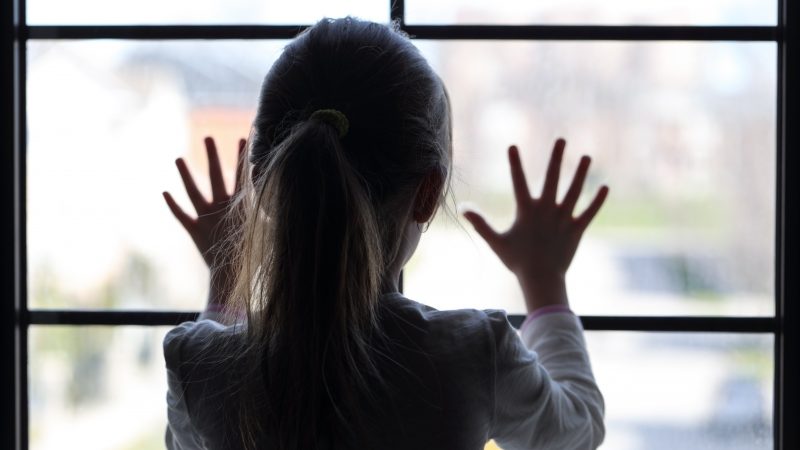
Covid-19 and the accompanying lockdown have highlighted many daunting inequalities across our country and a public sector struggling after a decade of Conservative cuts. From the social care catastrophe to the treatment of frontline workers, to housing and the use of public space, social and economic policy will be very different in a post-Covid world.
One area of the state that has not received enough attention during this crisis, befitting its role as a policy afterthought, is social work and children’s social care. The number of children being referred to care homes has risen by almost 50% during the pandemic. With schools closed and social workers prevented or unable to make as many visits to troubled families, vulnerable children have often been left to their own devices. Social workers, who work tirelessly, were hamstrung by their own caring commitments at home: absentee rates reached an estimated 35% percent at the peak of lockdown. With huge increases in incidents of domestic violence, the misuse of alcohol and drugs and the lack of schooling as a protective factor, social workers speak of a ‘perfect storm’.
The storm strikes a system on the cusp of breaking point. This was chronicled powerfully in a recent case before the High Court, following a challenge to the government’s decision to amend the requirement for social workers to undertake direct visits to children in care during the pandemic. Sophie Langdale, director of children’s social care at the Department of Education, told the court that the system was “already facing significant pressures prior to Covid-19”. On the eve of the pandemic, 50% of local authorities failed to be deemed as ‘good’ or above by Ofsted, with 21 councils regarded as ‘inadequate’. There was a lack of social workers, an increase in need, and budgets have been slashed year-on-year.
In April, a different High Court judge took the unusual step of sending ministers a copy of his judgment expressing concern at a ‘nationwide problem’ of demand outstripping supply in accommodation for children in care. The facts of that case show the human cost of a lack of investment. A 15-year-old girl, from a family unable to care for her, had been moved to 14 different placements in 12 months, as none were suitable. She had repeatedly fled unregulated accommodation units and was deemed to be at serious risk of self-harm and sexual exploitation.
Another case that came before the courts recently involved a 16-year-old boy who, in the words of his guardian, “remains very much at risk of killing himself or being killed” unless secure accommodation was found. There was no such placement available. The judge bemoaned the lack of places available, stating: “The problem, put simply, is the lack of secure placements available in England. That is a resourcing issue quite beyond the powers of the local authority.” He followed the High Court and sent a copy of the judgment to ministers.
The lack of proper accommodation options is having a devastating effect on vulnerable children – and this failing affects us all. There has been a 77% increase in the number of children in England being placed far from their home area. Police have linked this directly to the rise of ‘county-line gangs’, and a report by the all-party parliamentary group for runaway and missing children and adults revealed that sending children away from their local area helps them to become easy prey for “recruiting sergeants” in drug gangs.
The crisis has not emerged from a vacuum, but is a consequence of political decisions. Since 2010, local authority budgets have been cut by 26%, whilst the statutory requirement for local authorities to look after vulnerable children remains. This is simply unsustainable, and the consequences are now being seen. For too long, children in care have been ignored. There are over 75,000 children in care and on almost every indicator their outcomes are far worse than their peers living with birth families. Whilst they represent just 1% of all children, they are hugely overrepresented in the youth justice system, with 37% of young offenders having been in care. Just 15% of looked-after children achieve five A*-C grades, whereas the national average is 55%.
A cold-hearted analysis reveals a false economy. A lack of investment at an early stage leads to a myriad of costs for a society as a whole. A failure to support children in care from the outset leads to huge demand on our public services and spending, with remarkably higher rates of unemployment and homelessness in the care-leaver population. New research from University College London and King’s College London has also revealed that the long-term health outcomes for those who grew up in foster care, rather than in a familial home, were dismal.
But of more importance is the story of a moral failing. These are children born to families unable to look after them, often with horrific upbringings scarred by abuse and emotional and physical trauma. As a society, we must do better by them. This inaction is leading to children and young people suffering significant harm, which affects us all. Labour must always stand up for the most vulnerable and ensure their voices are heard.




More from LabourList
Nudification apps facilitate digital sexual assault – and they should be banned
Diane Abbott suspended from Labour after defending racism comments
Labour campaign groups join forces to call for reinstatement of MPs